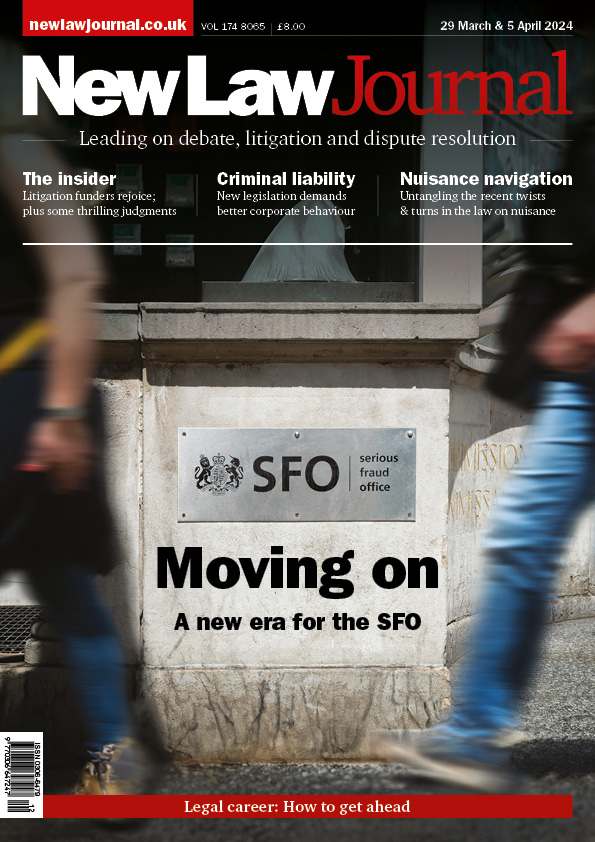THIS ISSUE

WikiLeaks founder Julian Assange has escaped immediate extradition to the US, where he is wanted on charges of espionage
The government has pinpointed four initiatives for investigation, after comparing civil legal aid systems in other jurisdictions
The Law Society has updated its TA6 property information form to include ‘material information’ such as proximity of electric car charging points and local flood risks
Magistrates have called for reform of the single justice procedure (SJP), which handles about 40,000 low-level criminal cases each month
MOVERS & SHAKERS

NLJ Career Profile: Mark Hastings, Quillon Law
Mark Hastings, founding partner of Quillon Law, on turning dreams into reality and pushing back on preconceptions about partnership

Kingsley Napley—Silvia Devecchi
New family law partner for Italian and international clients appointed

Mishcon de Reya—Susannah Kintish
Firm elects new chair of tier 1 ranked employment department
NEWS
Talk of a reserved ‘Welsh seat’ on the Supreme Court is misplaced. In NLJ this week, Professor Graham Zellick KC explains that the Constitutional Reform Act treats ‘England and Wales’ as one jurisdiction, with no statutory Welsh slot
The government’s plan to curb jury trials has sparked ‘jury furore’. Writing in NLJ this week, David Locke, partner at Hill Dickinson, says the rationale is ‘grossly inadequate’
A year after the $1.5bn Bybit heist, crypto fraud is booming—but so is recovery. Writing in NLJ this week, Neil Holloway, founder and CEO of M2 Recovery, warns that scams hit at least $14bn in 2025, fuelled by ‘pig butchering’ cons and AI deepfakes
After Woodcock confirmed no general duty to warn, debate turns to the criminal law. Writing in NLJ this week, Charles Davey of The Barrister Group urges revival of misprision or a modern equivalent
Family courts are tightening control of expert evidence. Writing in NLJ this week, Dr Chris Pamplin says there is ‘no automatic right’ to call experts; attendance must be ‘necessary in the interests of justice’ under FPR Pt 25





